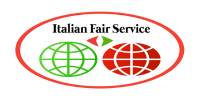
KENYA – Kenya has made a major step in marketing its Agro-produce internationally by becoming the first country in Africa to introduce and adopt electronic phytosanitary certification (ephyto), which is likely to increase the quality of trade with the European market under the ongoing agriculture digitalization program.
Phytosanitary certificates are official documents issued by governments to confirm that shipments of plants and plant products being traded internationally are free of pests and diseases and therefore safe to import.
Until recently, these certificates were always physical paper documents that were transferred between different parties by post, courier, or other physical means.
The ePhyto Solution allows countries to electronically exchange ePhytos with each other through a central hub, quickly, accurately, and at a low cost.
The risk of loss, damage, or fraud to the certificate is greatly reduced, as is the administrative burden on both border agencies and businesses.
The e-solution was developed by the IPPC Secretariat with support from the United Nations International Computing Centre (UN ICC to bring phytosanitary certification into the digital era. The project was initiated and co-financed by the Standards and Trade Development Facility (STDF).
Speaking during the E-certification milestone celebrations, Principal Secretary of State Department for Crop and Development, in the Ministry of Agriculture and Livestock Kellow Harsama expressed optimism that the shift was instrumental in shaping a more inclusive digital transformation in all business processes in agriculture and trade.
He noted: “It is time to ensure that the future of innovation contributes to the achievement of the Sustainable Development Goals. Let’s work together to embrace a win-win future”, the PS told participants during the celebrations marking the cooperation between Kenya and The Netherlands on the Electronic Certification milestone.
We are aware that digitalization is a key factor to bolster investment and innovative development for both our countries. Our focus towards digitalization and our investment in the development of innovative technologies has enabled us to effectively compete in the global market where the transformation has a high impact in many areas, especially enhanced trade in plants and plant products.”
Harsama added that the development of electronic certification standard and creation of the International Plant Protection Convention (IPPC) ePhyto Hub serves as a platform for the exchange of ePhyto among trading partners where over 70 countries have successfully implemented paperless certification is a big milestone for the country.
Kenya Plant Health Inspectorate Service (KEPHIS) Managing Director Prof. Theophilus Mutui commented that over a decade of opportunities where Kenya has worked together with the Netherlands to automate their processes.
To meet high customer expectations, Prof. Mutui said KEPHIS has accelerated the digitization of its business processes that goes beyond simply automating the existing processes but re-inventing the entire business processes including developing automated decision-making and dealing with regulatory and fraud issues.
Patricia de Vries – van Loon – Chief Phytosanitary Officer, Ministry of Agriculture, Nature and Food Quality from the Netherlands said their county was keen to expand the Ephyto concept beyond Kenya as the starting point.
She said by going paperless, the electronic certification system will facilitate a more efficient trade of fresh produce between our two countries by improving the efficiency of imports and exports by saving time and valuable resources.

